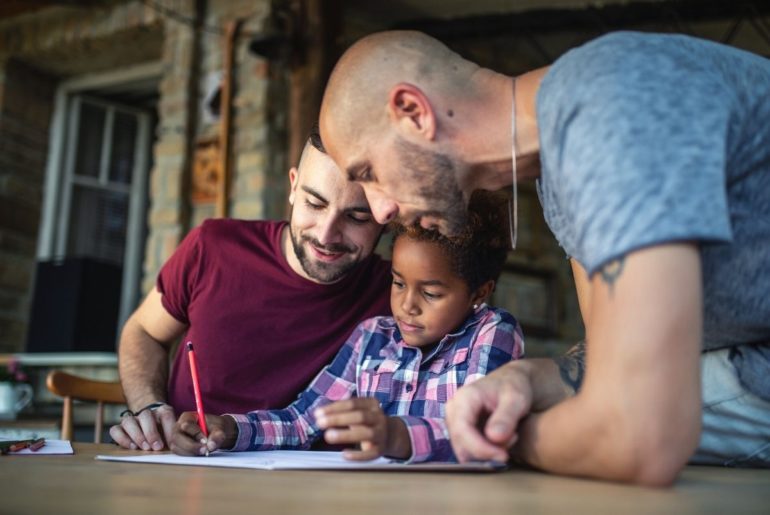A lot has changed in the more than 40 years since the first gay couple adopted a baby in California in 1979. Today, same-sex marriage is legal thanks to the 2015 federal marriage equality ruling, and families are more diverse than ever.
In 2016 Mississippi became the last state to overturn laws banning LGBTQ adoption, paving the way for same-sex couples looking to start or expand their families. Perhaps not surprisingly, more and more gay couples, specifically, started adopting: Same-sex couples are four times more likely to adopt a child and six times more likely to foster a child when compared to heterosexual couples. With more than 100,00 children waiting to be adopted in this country alone, allowing gay couples to adopt ensures more kids find their forever homes.
But even though adoption nondiscrimination laws and policies prevent adoption agencies and officials from discriminating against LGBTQ parents and families, 20 percent of the LGBTQ population in America lives in a state that permits state-licensed child welfare agencies to refuse to place and provide services to children and families, including LGBTQ people and same-sex couples, if doing so conflicts with their religious beliefs. Other states have passed legislation that allows private adoption agencies to discriminate on the basis of sexual orientation or religious beliefs.
Only 27 states and one territory have laws or policies that expressly prohibit discrimination in adoption based on sexual orientation or gender identity, according to the Movement Advancement Project, a non-profit that works to achieve equality for all. The rest of the states either prohibit based on sexual discriminaton only or don’t have any protections at all.
Same-sex adoptions yield positive outcomes
Numerous large, credible studies have revealed that children raised in same-sex parent families fare just as well as children raised in different-sex parent families across a wide spectrum of measures, including academic performance, cognitive development, social development, and psychological health. They’re also less likely to abuse substances.
If family really is more than just biology, then there is never a reason to give up hope. Many organizations are dedicated to helping same-sex couples adopt and foster children. In Arizona, Project Jigsaw is a grassroots coalition working “to create an environment where all couples, regardless of sexual orientation or gender, are provided the opportunity to build a loving family for amazing children.” Kansas-based American Adoptions, one of the largest adoption agencies in the U.S., facilitates LGBTQ adoptions, as do many others. One simple way to support same-sex families looking to adopt is to vote for legislation that allows them to do so.
With so many children still waiting to be adopted, nothing should hold back couples from building their families, no matter who they are or how they identify themselves.







